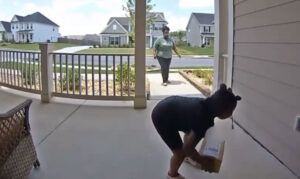Defrauding WIC program draws jail time, $2.2 million in mandated restitution —
Five defendants have now entered guilty pleas in a case in which they were charged with defrauding the Women, Infant, and Children (WIC) program, administered in Georgia by the Department of Public Health (DPH), according to the Georgia Attorney General Feb 13.
Defendants Lashana Glasper, Tiasha Hendricks, Anthony T. Jones, Chrissy Davidson Jones, and Melzie Larvell Pullin each entered guilty pleas in Fayette County Superior Court to an indictment in which they were all charged with one count of racketeering.
Lashana Glasper entered a plea of guilty and was sentenced on Aug. 2, 2018, by Judge W. Fletcher Sams to 15 years to serve two, and required to pay restitution of $237,951.78.
Anthony T. Jones entered a plea of guilty and was sentenced under the First Offender Act on Jan. 24, 2019, by Senior Judge John C. Carbo III to three years probation, and required to pay restitution of $500,000.
Chrissy Davidson Jones entered a plea of guilty and was sentenced under the First Offender Act on Jan. 24, 2019, by Judge Carbo to 15 years to serve four, and required to pay restitution of $583,859.61. Two years of the four years in prison will be suspended if she pays all of the restitution by Aug. 1, 2019.
Melzie Larvell Pullin entered a plea of guilty and was sentenced on Jan. 24, 2019, by Judge Carbo to 15 years to serve two, and required to pay restitution of $401,565.
Tiasha Hendricks entered a guilty plea and was sentenced on Feb. 11, 2019, by Judge Carbo and received 15 years to serve 1, plus restitution of $500,000.
As set forth in the indictment, these defendants engaged in a scheme to defraud the WIC program through the unauthorized use and redemption of vouchers, which are intended to be used for food and can only be used at stores that have been authorized by DPH to participate as vendors in the WIC program.
As part of the scheme, Glasper, Hendricks, Anthony T. Jones and Chrissy Davidson Jones obtained vouchers by unauthorized means, such as paying cash for vouchers.
Hendricks, Anthony T. Jones and Chrissy Davidson Jones (or others acting on their behalf) stamped the vouchers with WIC vendor numbers which did not belong to them and which they were not authorized to use, then deposited the vouchers into their bank accounts. DPH paid for the vouchers because the defendants had created the false impression that the vouchers were being redeemed by the vendors whose identification numbers were stamped on them.
Payments from the unauthorized redemption of these vouchers totaling over $3.7 million dollars were made into bank accounts owned by Hendricks, Anthony T. Jones and Chrissy Davidson Jones.
As part of the scheme, Glasper, Chrissy Davidson Jones and others delivered vouchers to Pullin, who owned a store that was authorized to participate in the WIC program. Some of these vouchers were stamped by Pullin (or by others on his behalf) with his vendor number and deposited into an account of Anthony T. Jones and Chrissy Davidson Jones. The total amount of vouchers with Pullin’s vendor number that were deposited into the Jones’ account was over $400,000.
“I applaud the cooperative work of our Prosecution Division, the Georgia Bureau of Investigation and the United States Department of Agriculture in this case. The tax dollars used to support this program are intended to help vulnerable women, infants and children in our state, and not to line the pockets of others. This should send a message that we will always protect the most vulnerable in our state and ensure compliance with the programs we have instituted for their support,” said Attorney General Chris Carr.
Senior Assistant Attorney General Greg Lohmeier and Assistant Attorney General Blair McGowan prosecuted the case on behalf of the State of Georgia. The case was investigated by Deborah Loving and Robert Balsam with the Georgia Bureau of Investigation and with the United States Department of Agriculture, Office of Inspector General — Investigations.













Leave a Comment
You must be logged in to post a comment.